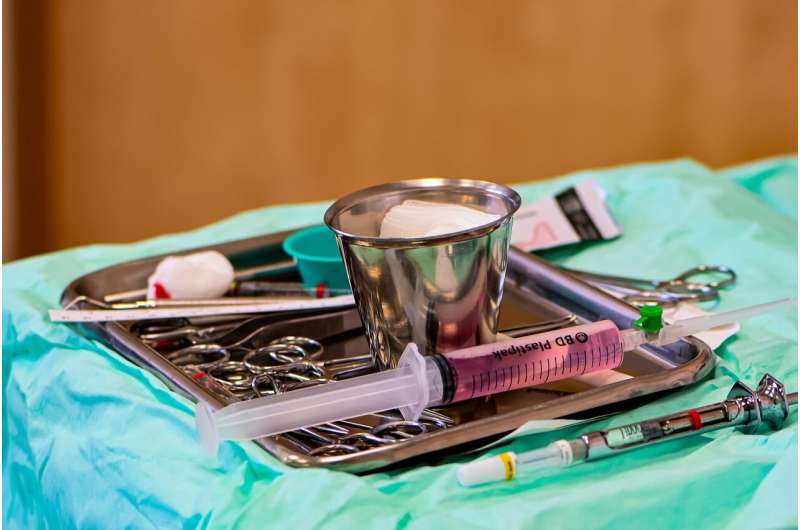
The first-ever randomized clinical trial linked to registry data from the American College of Surgeons National Surgical Quality Improvement Program (ACS NSQIP) shows that for patients undergoing pancreatoduodenectomy, also known as the Whipple procedure, a change in antibiotics before the procedure reduces the rate of surgical site infections (SSIs). The findings were published recently in the Journal of the American Medical Association (JAMA).
The clinical trial is also the first registry-linked surgical clinical trial completed in North America, according to the researchers.
“ACS NSQIP has a long history of collecting high-quality data and helping hospitals use that data to improve the care they provide to patients. This study is an important development to leverage that data to support a randomized clinical trial and improve surgical patient outcomes,” said study co-author Clifford Y. Ko, MD, MS, MSHS, FACS, FASCRS, Director, ACS Division of Research and Optimal Patient Care. “Since its inception, ACS NSQIP has been associated with improved surgical safety and has helped hospitals and physicians deliver better care for patients. Now, this data is being used to advance the science of medicine, as well.”
Randomized clinical trials provide the highest level of scientific evidence, however, they can be expensive to conduct because of the costs of data collection. By collecting data for the trial from ACS NSQIP, the researchers were able to undertake the clinical trial at a substantially reduced expense. This trial is an example of achieving the highest-level evidence while using existing resources.
ACS NSQIP uses risk-adjusted data gathered from medical charts by clinically trained personnel and includes an assessment of the patient’s condition 30 days after a surgical procedure. Hospitals participating in ACS NSQIP use this nationally validated, outcomes-based approach to measure and improve the quality of surgical care they provide.
Pancreatoduodenectomy is the primary surgical treatment for pancreatic cancer and involves removing the head of the pancreas. The procedure is also used to treat benign conditions and other cancers. Despite improvements in survivorship from the surgery over the years, the incidence of SSIs after the procedure remains high.
Study design and findings
Researchers looked at whether broad-spectrum antibiotics, specifically piperacillin-tazobactam, improved postoperative SSI rates compared with cefoxitin, a standard care antibiotic. The randomized phase 3 clinical trial spanned 26 hospitals across the United States and Canada. There were 778 patients included in the trial, which ran from November 2017 to August 2021.
The rate of SSIs at 30 days after the operation was the primary outcome measured:
- 19.8% of patients in the broad-spectrum antibiotics group had an SSI
- 32.8% of patients in the standard care antibiotics group had an SSI
The preoperative use of broad-spectrum antibiotics in these patients also led to improved rates of postoperative sepsis and postoperative pancreatic fistula. Mortality rates were also lower for the broad-spectrum antibiotics patients.
The authors conclude, “The findings support the use of piperacillin-tazobactam as standard care for open pancreatoduodenectomy.”
Improving the safety of cancer surgery helps both patients and the clinical team address the cancer more appropriately and more successfully. The findings from this clinical trial provide a better way to decrease SSIs in a highly complex surgery for cancer care.
More information:
Michael I. D’Angelica et al, Piperacillin-Tazobactam Compared With Cefoxitin as Antimicrobial Prophylaxis for Pancreatoduodenectomy, JAMA (2023). DOI: 10.1001/jama.2023.5728
Journal information:
Journal of the American Medical Association
Source: Read Full Article
